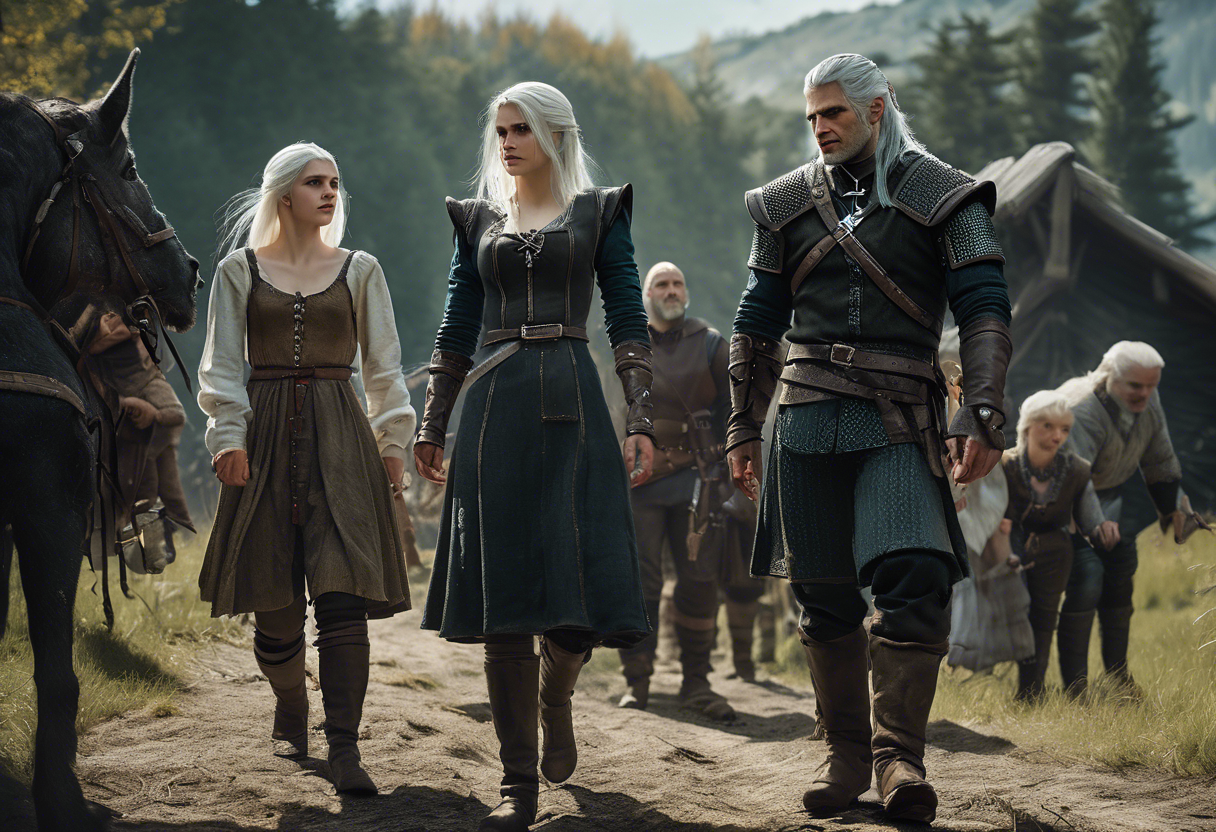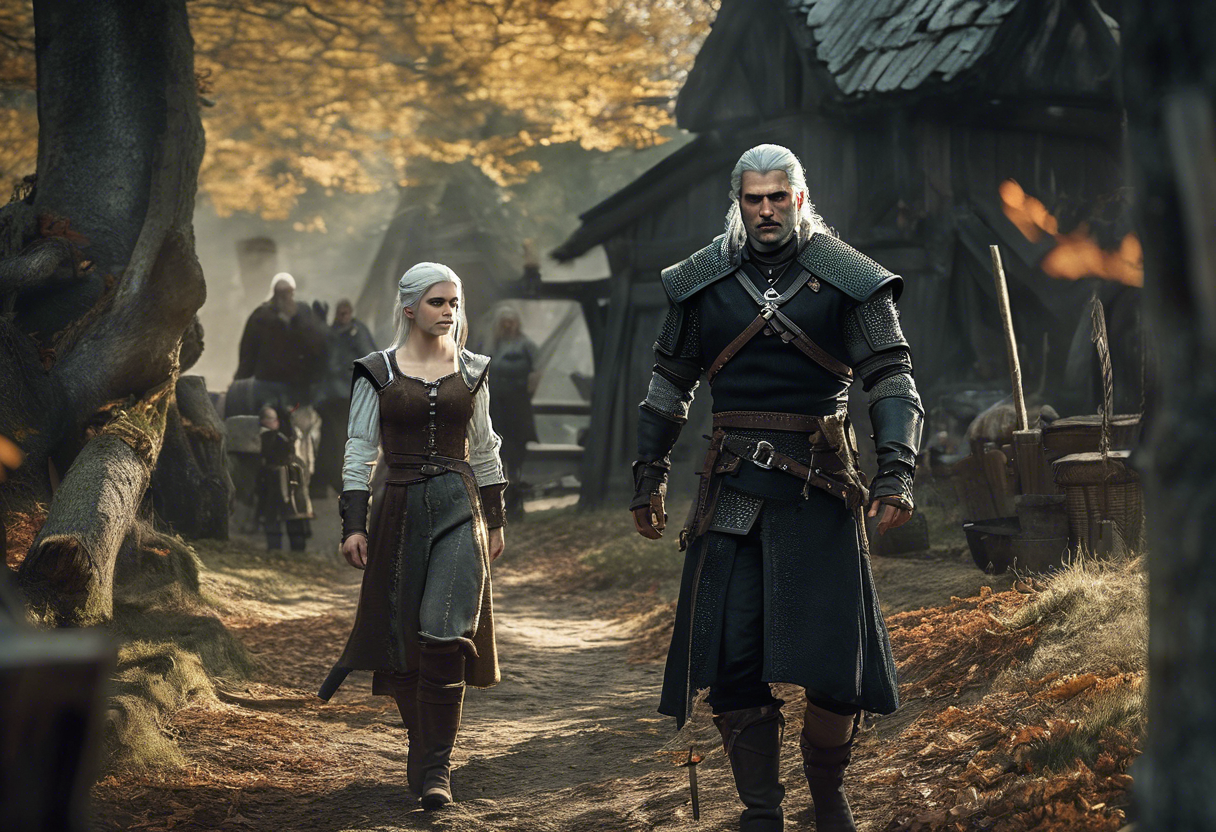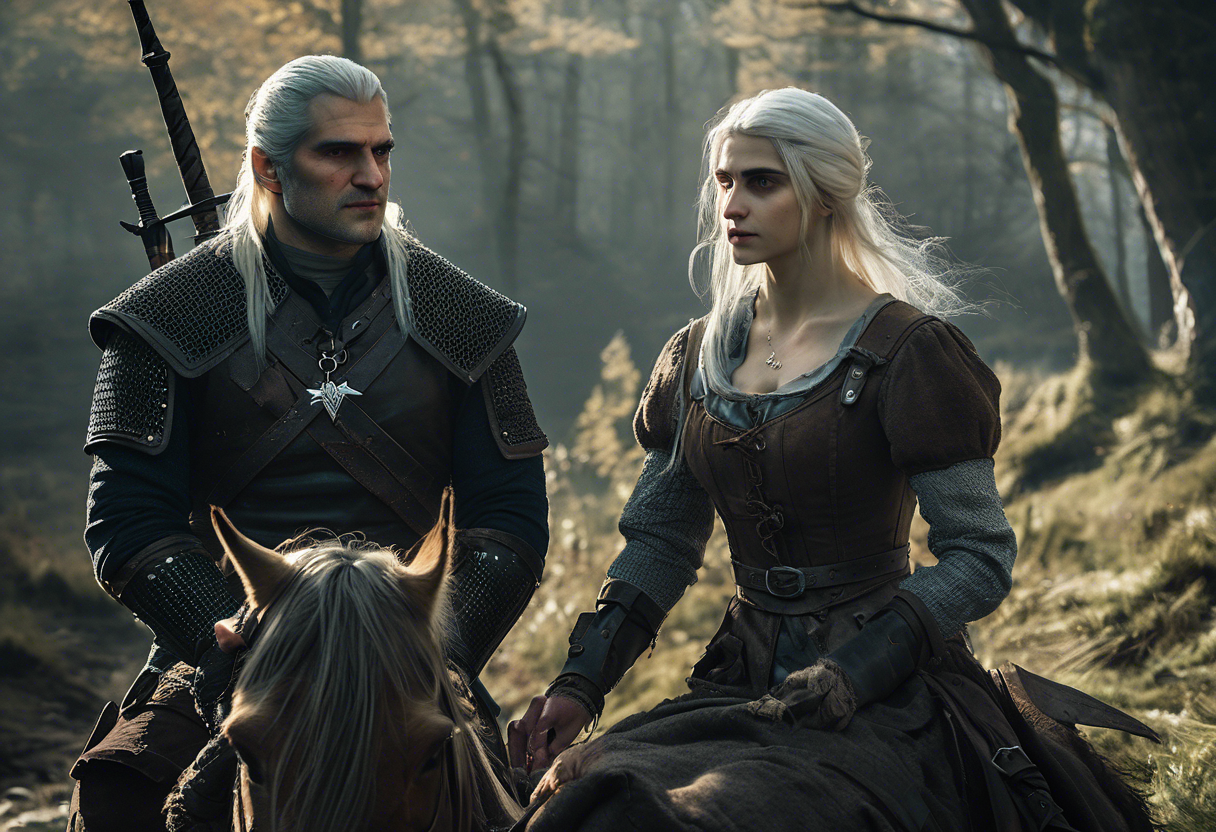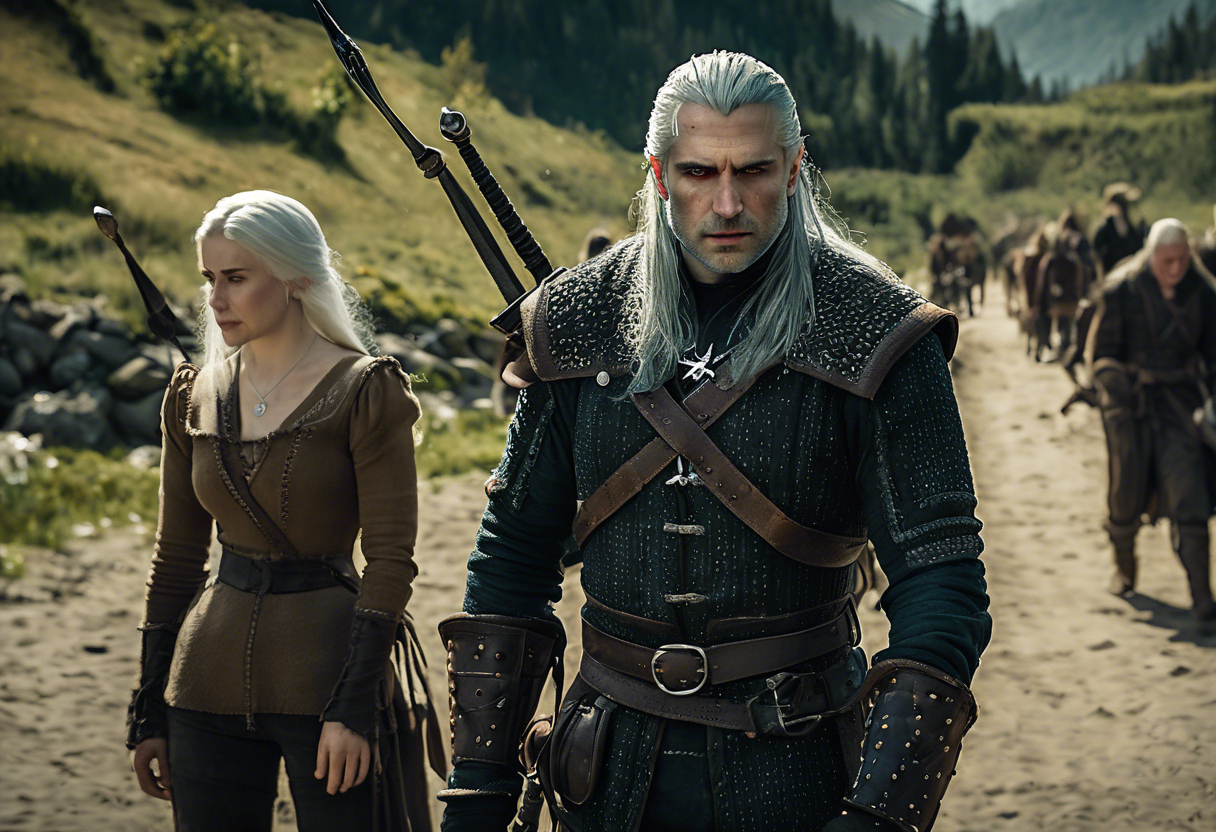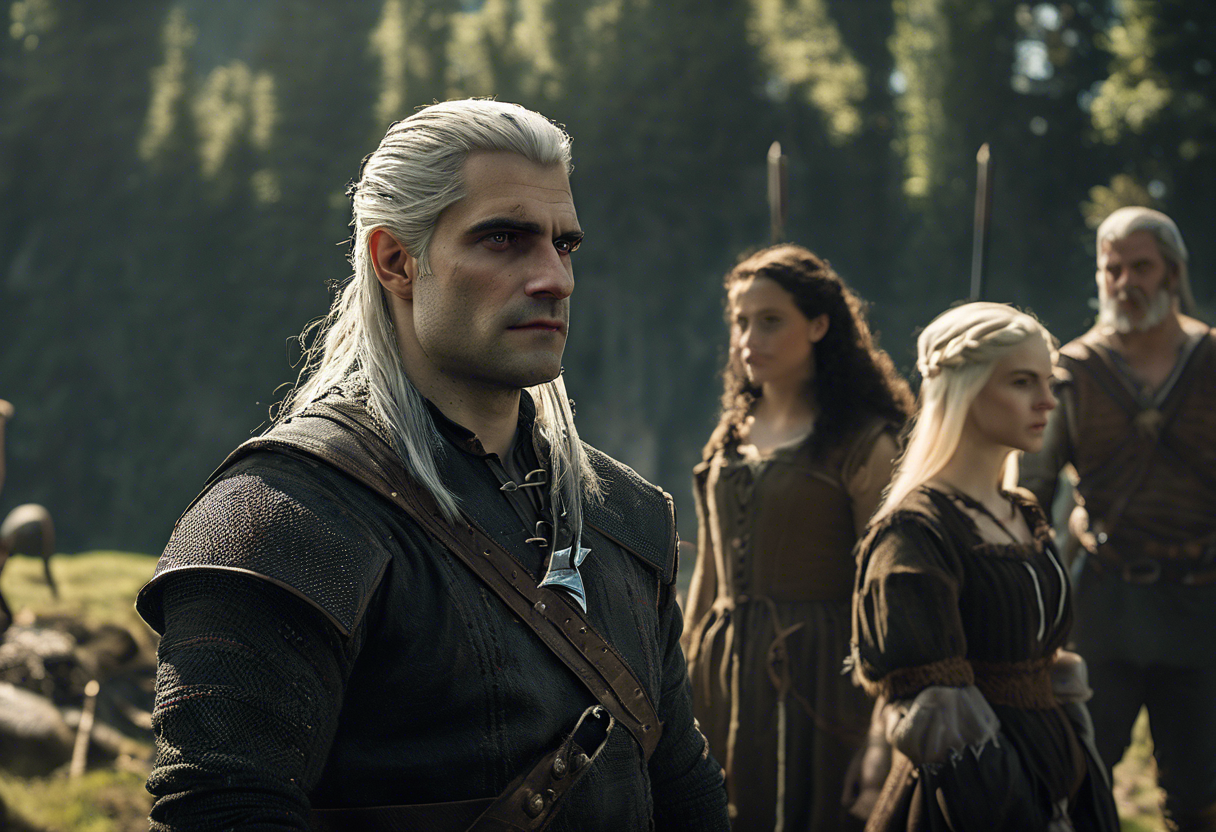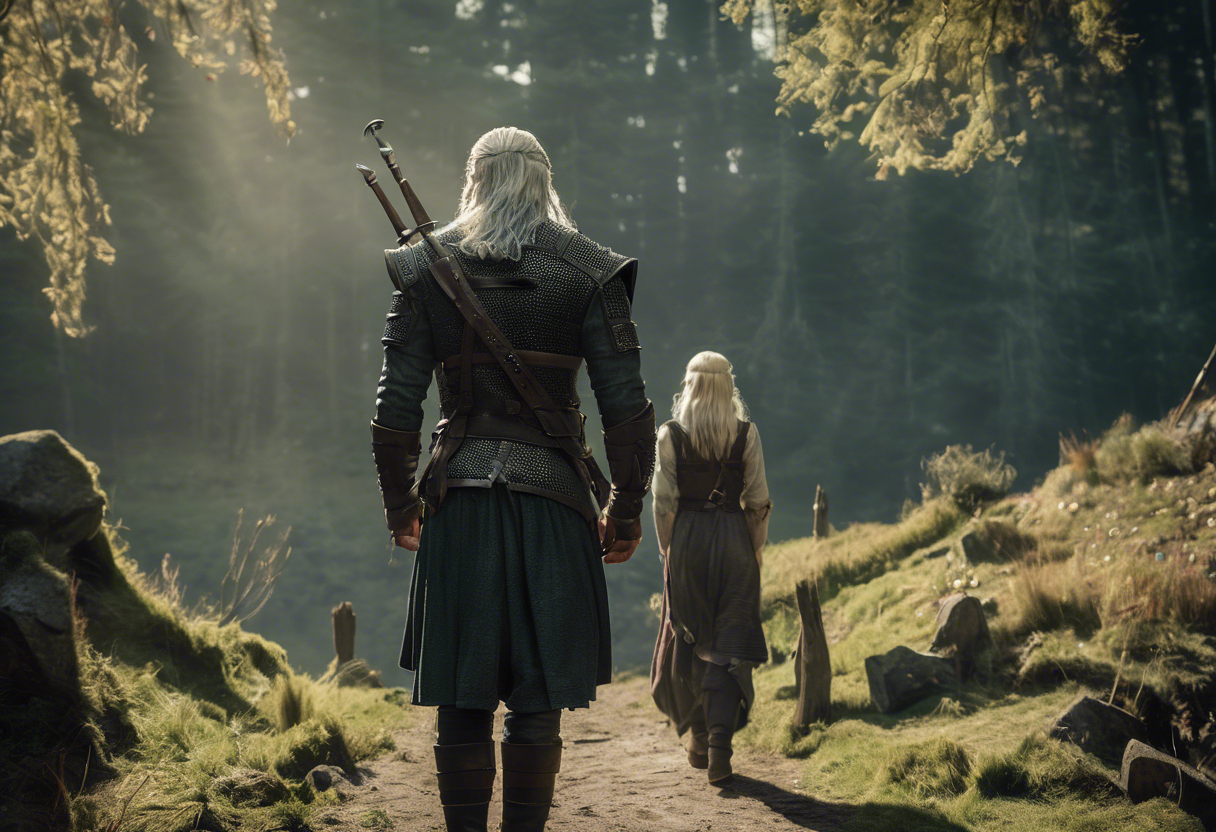Contents
The Witcher Season 2: The Evolution of Family
Introduction
Season 2 of Netflix’s The Witcher, released on December 17, 2021, marks a significant milestone in the series by delving deeper into the themes of family, identity, and the bonds that form between its central characters. The show, based on the popular book series by Andrzej Sapkowski, is produced by Lauren Schmidt Hissrich, who also serves as the showrunner and writer for several episodes. The season continues to build on the foundations laid in the first season, focusing more intently on the interactions and relationships between Geralt of Rivia, Ciri, and Yennefer.
The production of Season 2 involved a range of creative figures, including directors such as Stephen Surjik and Sarah O’Gorman, and writers like Beau DeMayo and Clare Higgins. The season’s narrative is notable for its more linear storytelling approach compared to the non-linear structure of the first season, which was inspired by Christopher Nolan’s Dunkirk[3].
Plot Summary
The second season of The Witcher picks up where the first left off, with Geralt of Rivia (Henry Cavill) believing Yennefer (Anya Chalotra) has been lost at the Battle of Sodden. Geralt takes Princess Cirilla (Freya Allan) to the safety of Kaer Morhen, the stronghold of the witchers, where he hopes to protect her from various threats. Here, Ciri begins to form a bond with the other witchers, particularly Vesemir (Kim Bodnia), who becomes a paternal figure to her.
Meanwhile, Yennefer’s journey takes a dramatic turn as she loses her magical powers, forcing her to confront her identity and purpose beyond her abilities. This loss leads her to a deeper connection with Ciri, as she discovers a new sense of purpose in being a parental figure to the young princess [1][3].
Key events include Geralt’s efforts to train and protect Ciri, who is struggling with her own powers and destiny. The season also introduces new characters and expands on existing ones, such as the sorceress Triss Merigold and the bard Jaskier, who play crucial roles in the narrative. The plot is driven by various conflicts, including the pursuit by Rience, who seeks to capture Ciri, and the political machinations of different factions vying for power in the Continent [4].
Themes and Symbolism
At the heart of Season 2 is the theme of family, which is explored through the relationships between Geralt, Ciri, and Yennefer. This found family dynamic is central to the series, as these characters, all orphans in their own way, form bonds that transcend traditional familial ties. The season highlights how these characters, who initially sought to be independent and self-sufficient, come to realize the importance of needing and supporting each other [1][3].
The loss of Yennefer’s powers serves as a symbolic element, forcing her to confront her identity and find new meaning in her life. This arc underscores the theme of identity and how it is shaped by both internal and external factors. The character development of Geralt as a father figure to Ciri also adds depth to the narrative, showing how his role evolves from a solitary monster hunter to a protective guardian [1].
The setting of Kaer Morhen, the witchers’ stronghold, is another symbolic element, representing a place of safety and belonging for characters who have been outsiders. The interactions between Ciri and the other witchers at Kaer Morhen are particularly poignant, highlighting the formation of a new family unit [2].
Cultural Impact
Upon its release, Season 2 of The Witcher received significant attention and acclaim. The show’s focus on family and character development resonated with audiences, who appreciated the deeper exploration of the characters’ emotional journeys. The season’s release was highly anticipated, and it did not disappoint, drawing in both fans of the book series and new viewers.
The show’s influence on popular culture is evident in its fan base, which has created numerous fan art, cosplay, and fan fiction inspired by the characters and their relationships. The show’s themes of family and identity have also sparked discussions and analyses in various media outlets and social platforms.
Critical Reception
Season 2 of The Witcher was generally well-received by critics and audiences. Reviewers praised the show’s character development, particularly the evolution of Geralt and Yennefer’s roles as parental figures to Ciri. The show’s more linear storytelling was also appreciated, as it allowed for a more cohesive narrative compared to the first season [1][2].
However, some critics noted that the season ended on a cliffhanger, leaving many questions unanswered and setting up a potentially long wait for the next season. Despite this, the overall reception was positive, with many praising the show’s emotional depth and the performances of the cast.
Legacy
Season 2 of The Witcher has solidified the series’ place in the fantasy genre, influencing how family and identity are portrayed in similar shows. The show’s focus on character development and emotional storytelling has set a high standard for future adaptations and original series.
The enduring relevance of Season 2 lies in its ability to resonate with audiences on a personal level. The themes of family, identity, and the need for human connection continue to inspire filmmakers, artists, and audiences alike. As the series progresses, it is clear that The Witcher will remain a significant part of cinematic history, known for its compelling characters and heartfelt storytelling.
References
- https://fangirlish.com/2021/12/21/the-witcher-season-2-review-family-is-where-its-at/
- https://www.nerdophiles.com/2021/12/10/the-witcher-seasson-2-review/
- https://en.wikipedia.org/wiki/The_Witcher_(TV_series)
- https://flickluster.com/review-the-witcher-season-2-the-surprise-heart-warming-family-hit-of-the-holiday-season/
- https://www.techradar.com/news/the-witcher-season-2-release-date-netflix

